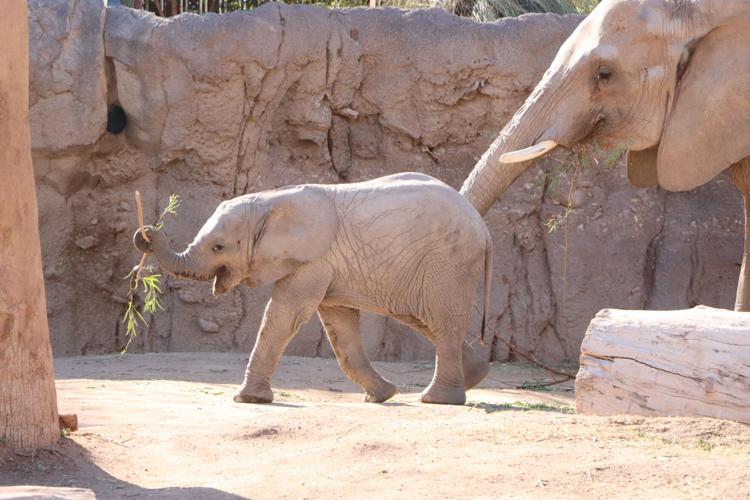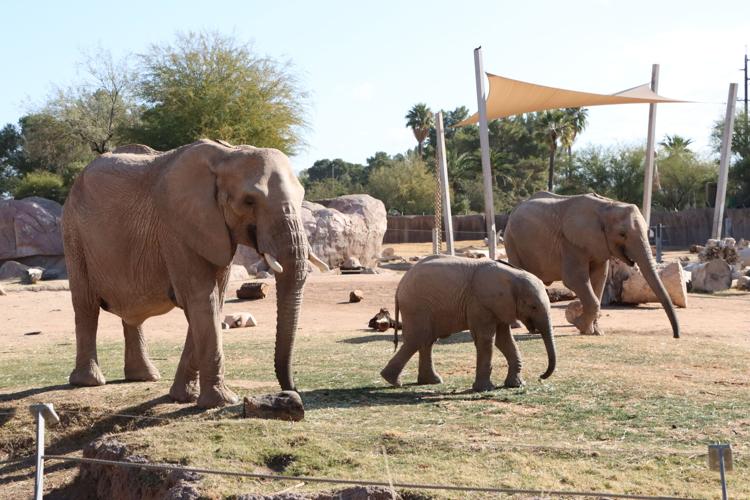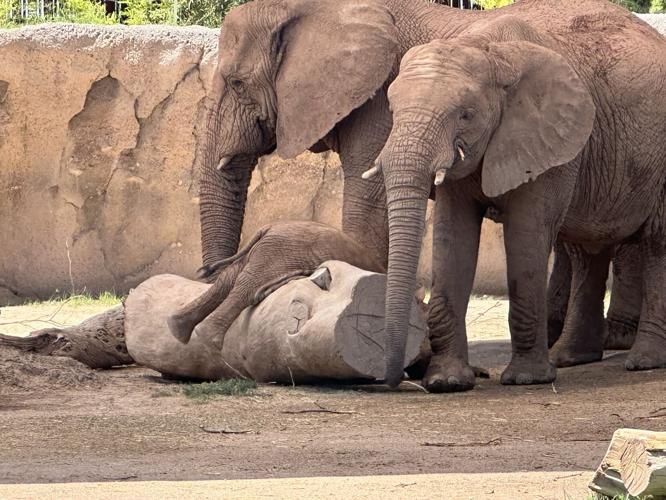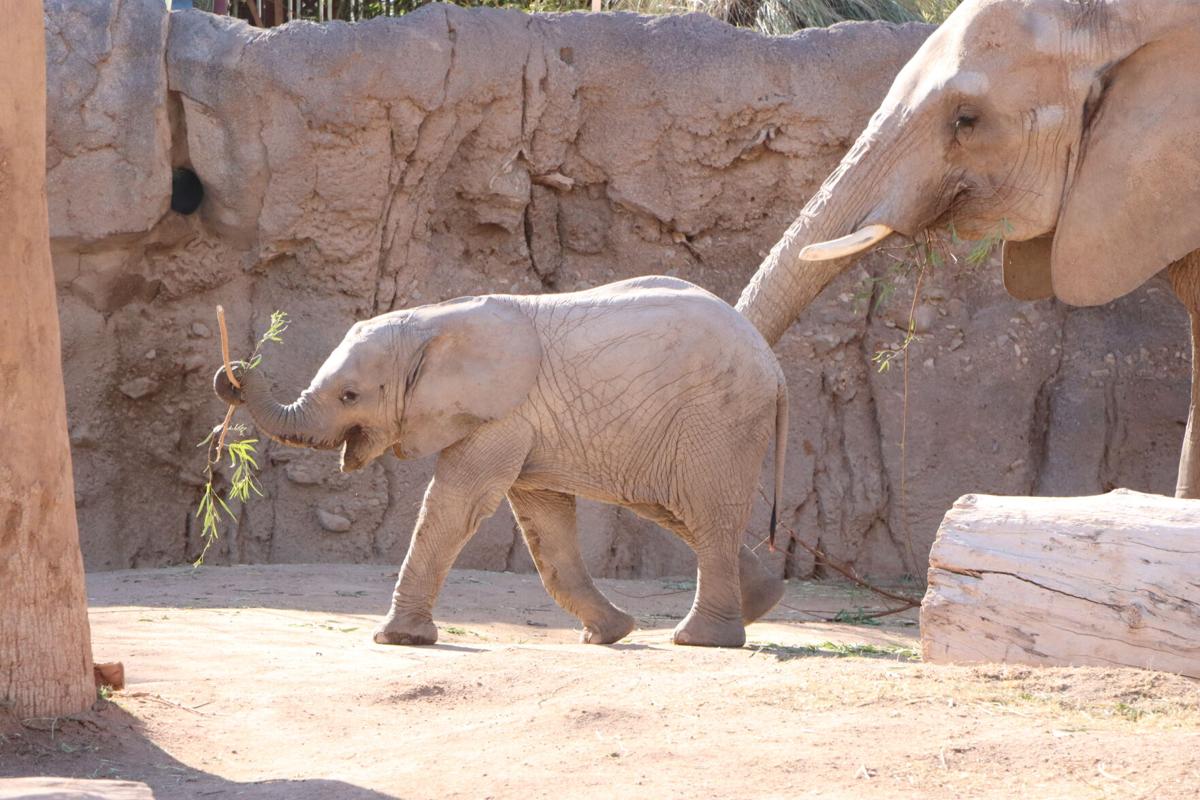At only 10 months old, elephant calf Meru has proven herself to be utterly brave and exceedingly confident.
“I have seen some of the other elephants as they were younger be more reactive or lose their patience more quickly or get nervous about new things, but (Meru) is very confident and very patient and very adventurous,” Reid Park Zoo elephant supervisor Cassie Dodds says.
Meru was born on March 8 to mom Semba, joining 10-year-old sister Nandi, 4-year-old sister Penzi and allomother Lungile. In late October, Reid Park Zoo, 3400 E. Zoo Court, also introduced to the herd 16-year-old male elephant Tsavo, who made his way to Tucson from Florida.
“Anytime there’s something interesting going on, (Meru will) wander away from her mom and the other elephants to go and investigate, even if that’s a new bull elephant,” Dodds says. “Her mom was a little cautious and stayed back, but Meru went right on up to him and didn’t care that no one else was around her. She just wanted that interaction.”
“She has been a bit of a welcoming committee with him,” Dodds says.

New herd member Tsavo has now spent time with all of the elephants without any barriers. Pictured is Penzi on the left and Meru underneath Tsavo.
Tsavo was introduced to the herd in baby steps, first through two barriers, then just one. Now, he’s interacted with the entire herd without any barriers in place — Dodds says it was an instantaneous friendship between Tsavo and 835-pound Meru.
“We were cautious and careful about introducing them and the final step was putting them in the space together,” Dodds says. “He immediately was very gentle with her and she immediately treated him like a friend.”
For Dodds, watching the introductions among the herd members and Tsavo is something she’ll cherish for the entirety of her career.
“Elephant introductions are really special and important — the most important thing to them is their social relationship,” she says. “Elephants can form bonds that last a lifetime.”

Elephant calf Meru is brave, independent and confident — but she still loves spending time with her herd members. Pictured here, from left: Semba, Meru and Penzi.
As for Meru’s growth in the last month, her attention span has improved, which is beneficial when working on her behaviors and training sessions.
Training sessions at Reid Park Zoo are voluntary for the elephants and always done through positive reinforcement. The sessions help zoo staff evaluate the health and well-being of the elephants.
“She’s learning things lightning fast,” Dodds says. “She’s learning to put her trunk back, to open her mouth, she’s learning to present her feet. Usually when we’re learning something new, that’s all she wants to do, so she’ll put her feet on the cables to try to get you to look at them.”
She’s also learning an “A to B” behavior, where one zookeeper will call her name and another person, standing elsewhere, will call her name afterwards.
“She’s getting really fast at that game and she’ll stay with the trainer. She’s really starting to focus on the trainer who’s with her,” Dodds says. “She knows her name for the most part. She usually gets moved with her mom so she might think her name is ‘Semba Meru.’”
Meru is still in love with grapes, and she’s also been branching out a bit more with slices of apple and sweet potato. And although she'll nurse for years to come, the big changes in her diet right now are leaves and hay. She used to simply nibble on them, but now she’s eating huge mouthfuls.
“One day, she’ll like something and the next day, she won’t,” Dodds says. “We’re trying to work with her on elephant pellets, which have vitamins and minerals that are good for the elephants. We try to give those to her. Sometimes she eats them like candy and sometimes she’ll just drop them on the ground. It varies from day to day — and time of day.”
Of course, Meru is still spending time doing what she does best: climbing on logs and large boomer balls. As per usual, her belly rolls on top of the ball and her little feet dangle off the ground.
“She’ll pass by a lot of other things in the habitat right now to spend time with her balls,” Dodds says.

Zoo visitors can often see Meru’s tiny legs dangling as she wiggles over logs.








